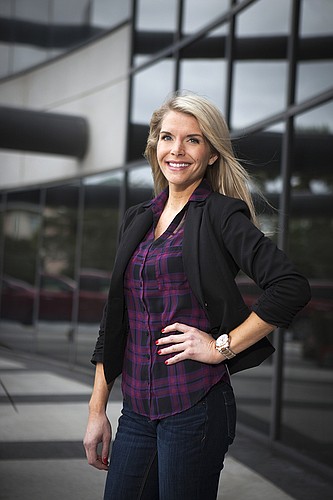- November 24, 2024
-
-
Loading

Loading

It's a good time to be a software developer.
They're in the highest need and have the most opportunities, says Malorie Young, senior corporate recruiter at Tampa-based tech company MadMobile.
That makes them “a little harder to rope in,” she says. “It's a candidate's market. They have the pick of the litter.”
But Young has figured out ways to improve her chances of bringing developers to MadMobile, which focuses on products and technology for mobile websites. Her system, for example, worked with 22-year-old Charles Burgess, whom she considers a star recruit.
“He did his research and called me looking for information on the company,” Young says. “That's what the best candidates do.”
Like many software developers, Burgess had a lot of options and wanted more information. She answered his questions and brought him in for multiple interviews, but she told him to take his time to consider all of his options between interviews. “No one likes desperate,” she says. “Don't put the pressure on. It just doesn't work.”
Her patience paid off, and Burgess chose MadMobile over five or six other options, Young says. And since joining in December, he has been the “fastest ramp-up of anyone I've hired,” she says.
Culture was a big focal point during Burgess' interviews, as it always is for Young. “The culture sells the company,” she says.
Certain things like keeping snacks stocked and having a foosball table are helpful — especially for younger recruits, who tend to be interested in collaboration and perks, Young says. “It's good to break away from work for a while,” she says. “It provokes creativity.”
But it's not just about promoting the company culture for Young. Part of her job is learning about the candidate's personality and ability to contribute to that culture. “If I don't want to sit with them, why would I do that to my colleagues?”
To avoid any issues, she pays attention to things like if the applicant is an introvert or outgoing. Then she chooses an appropriate person to place with them in the interview.
One challenge for Young is recruiting passive job seekers without being too over the top crazy in an offer. It helps, she says, to have a good counter offer at the ready. “It's hard to get good people from other locations,” Young says. “And if they want California, I just drop the mic and say forget it.”
Tips
• Find out how applicants found the job posting and what drew them to it;
• Use multiple avenues to locate talent;
• Send personalized messages to passive job seekers;
• Match personality types when assigning an interviewer to a candidate.